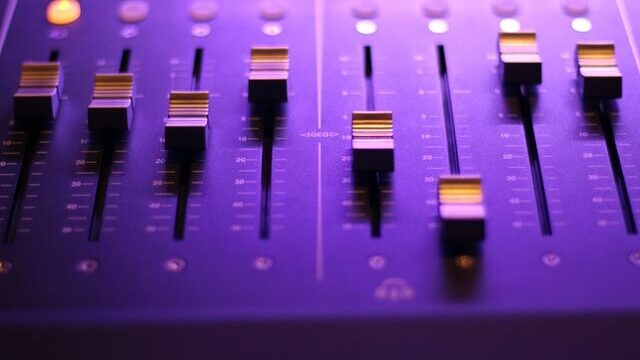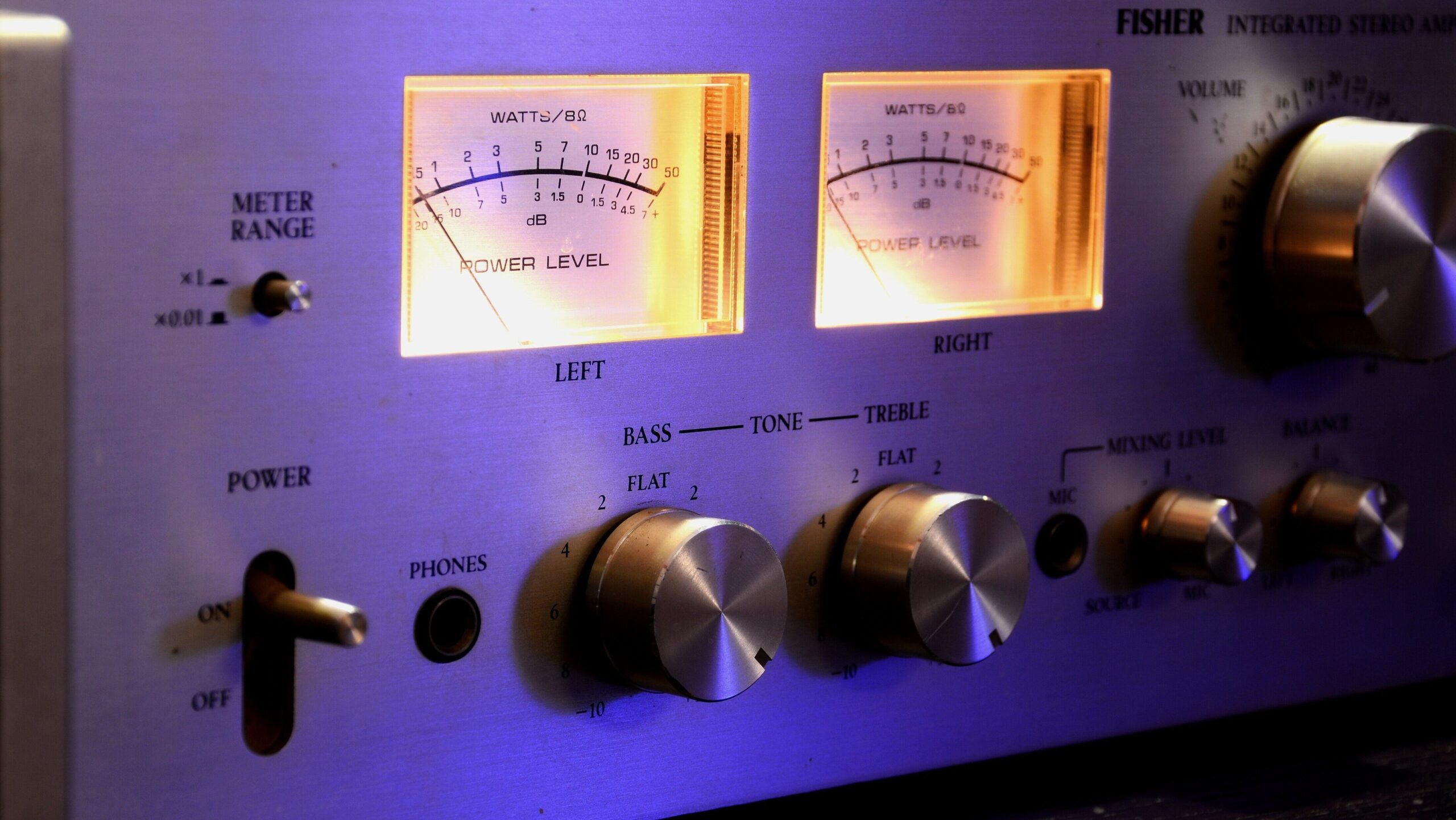Coaxial speakers are a favoured option for many audio enthusiasts due to their convenient design and ease of installation. However, one common question is whether coaxial speakers need an amplifier to function correctly. In this blog post, we will explore this topic in more detail, discussing the function of amplifiers, the benefits of using an amplifier with coaxial speakers, and when an amplifier may not be necessary.
Do coaxial Speakers Need an Amp?

Heading 1:
The Function of Amplifiers An amplifier is a device that increases the power of an audio signal, allowing it to drive speakers and produce sound. Without an amplifier, the call from an audio source, such as a CD player or a smartphone, would not have enough power to make an audible sound from a speaker.
Amplifiers come in many forms, ranging from simple stereo amplifiers to complex multi-channel amplifiers with advanced signal processing capabilities. The type of amplifier needed for a given audio system will depend on the speakers used and the desired power output.
Heading 2:
Benefits of Using an Amplifier with Coaxial Speakers Coaxial speakers can be powered by various amplifiers, ranging from low-powered integrated amplifiers to high-powered dedicated amplifiers. Using an amplifier with coaxial speakers can provide several benefits, including:
- Improved Sound Quality: An amplifier can improve the sound quality of coaxial speakers by providing a clean and stable power source. This can help to reduce distortion and noise, resulting in more precise and detailed sound.
- Increased Volume: Coaxial speakers powered by an amplifier can produce a higher volume level than those powered by a receiver or other low-powered device. This can be particularly beneficial in larger rooms or outdoor environments, where a higher volume level may be needed to fill the space with sound.
- Greater Flexibility: An amplifier can provide greater speaker placement and system configuration flexibility. For example, a multi-channel amplifier can power several coaxial speakers in different locations, allowing for a more immersive audio experience.
Heading 3:
When an Amplifier May Not Be Necessary While using an amplifier with coaxial speakers can provide several benefits, there are situations where an amplifier may not be necessary. For example:
- Low-Powered Audio Sources: If the audio source, such as a smartphone or laptop, has a built-in amplifier, it may be able to power coaxial speakers without needing an external amplifier. However, the sound quality and volume level may limit the audio source’s output.
- Miniature Rooms: In small rooms or spaces, a low-powered amplifier or receiver may be sufficient to power coaxial speakers and provide an enjoyable listening experience.
- Limited Budget: If budget is a concern, it may be possible to find coaxial speakers designed to be used with low-powered amplifiers or an amplifier that provides good performance without breaking the bank.
Heading 4:
Buying Guides:
How to Choose an Amplifier for Coaxial Speakers If an amplifier is needed for coaxial speakers, it’s essential to choose a suitable amplifier. Some factors to consider when selecting an amplifier include the following:
- Power Output: The amplifier’s power output should sufficiently drive the coaxial speakers to the desired volume level without distortion or clipping.
- Impedance: The amplifier’s impedance should match the coaxial speakers’ impedance to ensure proper power transfer and optimal performance.
- Features: Consider what features you need in an amplifier, such as multi-channel capability, built-in signal processing, or wireless connectivity.
- Budget: Amplifiers come in a wide range of prices, so choosing an amplifier that fits your budget is essential.
Few additional information:

Certainly! Here are a few additional pieces of information that may be useful when considering whether coaxial speakers need an amplifier:
- Speaker Sensitivity: The sensitivity of a speaker is a measure of how efficiently it converts power into sound. Coaxial speakers with higher sensitivity ratings can produce more sound from the same amount of energy than speakers with lower sensitivity ratings. If you are using low-powered amplifiers or receivers, choosing coaxial speakers with higher sensitivity ratings may be beneficial to achieve the desired volume levels.
- Impedance Matching: Impedance matching is essential when connecting an amplifier to coaxial speakers. If the impedance of the amplifier and the speakers do not match, it can cause signal distortion or damage to the equipment. Most coaxial speakers have an impedance rating of 4 or 8 ohms, so choosing an amplifier with a matching impedance rating is essential.
- Bi-Amping and Bi-Wiring: Bi-amping and bi-wiring involve using separate amplifiers or channels to power the different drivers in a speaker. Some coaxial speakers are designed for bi-amping or bi-wiring, which can provide improved sound quality and clarity. However, these techniques require additional equipment and can be more complex.
- Room Acoustics: The acoustics of the room where you use your coaxial speakers can significantly impact their performance. The room’s size, shape, materials, and furnishings can affect how sound travels and is perceived. To obtain the most suitable potential sound from your coaxial speakers, it’s essential to consider the room acoustics and make any necessary adjustments or treatments.
Whether coaxial speakers need an amplifier is not a simple yes or no answer. The need for an amplifier depends on various factors, including the audio source’s power output, the room’s size, desired volume levels, and sound quality. Considering these factors and selecting the right equipment, you can enjoy high-quality sound from your coaxial speakers with or without an amplifier.
Guides Coaxial Speakers:

Coaxial or “full-range” speakers combine multiple drivers (the individual components that produce sound) into a single unit. The drivers are typically arranged in a concentric or “coaxial” configuration, with the tweeter (which produces high-frequency sounds) positioned in the centre of the woofer (which delivers low-frequency sounds).
Coaxial speakers are often used in car audio systems, where space is limited, and the speakers must be able to reproduce a wide range of frequencies. They can also be used in home audio systems, portable speakers, and other applications where a compact, versatile speaker is needed.
One of the primary benefits of coaxial speakers is that they can reproduce a wide range of frequencies, from deep bass to high treble, using a single speaker unit. This eliminates the need for separate woofers, tweeters, and other drivers, simplifying the installation process and reducing the speakers’ required space.
Coaxial speakers can also provide better imaging and soundstage than other types of speakers due to the concentric arrangement of the drivers. By putting the tweeter in the middle of the woofer, the sound waves from both drivers are more closely aligned, which can result in a more focused and accurate sound.
However, there are some potential downsides to coaxial speakers as well. Because all of the drivers are combined into a single unit, achieving optimal placement and positioning of the speakers for the best possible sound can be more challenging. Additionally, some coaxial speakers may not be able to produce as much volume or bass as more significant or specialized speakers.
Buying Guides:
When choosing coaxial speakers, it’s essential to consider factors such as size, power handling, sensitivity, and frequency response, as well as any special features or capabilities that may be important for your specific application. With the right coaxial speakers, you can enjoy high-quality sound that meets your needs and preferences.
FAQS:
Q.Do coaxial speakers require an amplifier?
A. Yes, coaxial speakers need an amplifier to function correctly. The amplifier provides power to the speakers, allowing them to produce sound.
Q. Can I connect coaxial speakers directly to my phone or computer?
A. Technically, you can connect coaxial speakers directly to your phone or computer, but the speakers may only function optimally with an amplifier. With an amplifier, the speakers may produce enough power to provide quality sound.
Q. How do I choose the suitable amplifier for my coaxial speakers?
A. When choosing an amplifier for your coaxial speakers, you’ll want to consider factors such as the speaker’s impedance, sensitivity, and power handling. It’s essential to choose an amplifier that is compatible with your speakers and that provides enough power to produce quality sound.
Q. Can I use a receiver as an amplifier for my coaxial speakers?
A. Yes, a receiver can serve as an amplifier for your coaxial speakers. Receivers typically have built-in amplifiers and can provide power to your speakers.
Q. Do higher-end coaxial speakers require more powerful amplifiers?
A. Higher-end coaxial speakers may need more powerful amplifiers to function optimally. However, it ultimately depends on the speaker’s specifications and the intended use. They are choosing an amplifier that matches the power requirements of your speakers.
